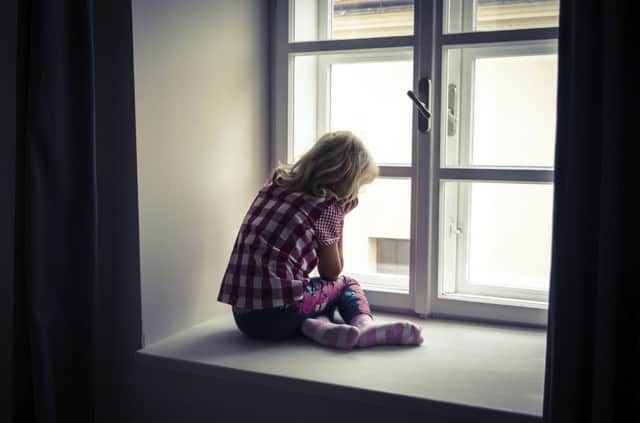Health boards failing Scotland’s vulnerable children


More than 4,200 children and young people started treatment during the last three months of 2015, with just 73 per cent being seen within 18 weeks, against a target of 90 per cent.
The worst performing health board was NHS Tayside, which only saw three out of ten patients within the targeted time as average waits spiralled to 25 weeks.
Advertisement
Hide AdAdvertisement
Hide AdYoung patients in the Scottish Borders only had to wait around three weeks for treatment, while Greater Glasgow and Clyde reported five-week average waits.
Among adult patients waiting for psychological therapy the figure rose to 81 per cent during the period from June to September.
In response to the figures, ministers have stepped in to support struggling health boards through a new improvement programme.
Jamie Hepburn, minister for sport, health improvement and mental health, said: “It’s clearly disappointing that some boards are not meeting the 18 week standard.
“In order to help some of these boards to reduce their waits we will develop an improvement programme to work with those individual boards.
“This will look at where problems lie, what solutions could be found, and where there are examples of best practice from around the country that might help to reduce waiting times.”
However, Liberal Democrat health spokesman Jim Hume MSP said the announcement was “too little, too late” and called on the government to give details on the plans.
He said: “Resources are stretched far too thinly across Scotland’s mental health services and vulnerable children, young people and adults in Scotland need action, not words. Today’s announcement is too little, too late.
Advertisement
Hide AdAdvertisement
Hide Ad“Six months ago the Scottish Liberal Democrats raised concerns over the length of time it was taking for young people to be treated for mental health conditions.
“We were told by the same minister who launched a ‘new improvement programme’ today that he was preparing to develop a ‘detailed recovery plan’.
“That was in June and since then waiting times in some areas have got worse.
“Where is the plan from then and can the minister give more details on his new programme rather than vague statements that the government will act?”
Just 0.45 per cent of NHS Scotland expenditure is spent on child and adolescent mental health, compared with 0.7 per cent in England and 0.8 per cent in Wales, the Scottish Children’s Services Coalition (SCSC) has claimed.
Sophie Pilgrim, director of the charity Kindred Scotland, speaking on behalf of the coalition, said: “We know that half of all diagnosable health conditions start before the age of 14 and 75 per cent by the age of 21 and as such it is vitally important that we intervene early and ensure that those young people with mental health conditions are able to realise their full potential.
“Many children are identified as having poor mental health. For the majority this may be circumstantial resulting in low esteem or depression, but many require diagnosis for underlying neurological or psychiatric conditions.
“For these children, timely assessment is essential.
“Scotland has some catching up to do in terms of providing for this aspect of child and adolescent mental health.”
Advertisement
Hide AdAdvertisement
Hide AdThe coalition said it was pleased that ministers were investing £100 million in mental health services over the next five years but urged them to act quickly to ensure young people do not miss out.
Demand for the service has risen by 27 per cent since the same quarter last year, which is equivalent to around 900 extra patients.
Mr Hepburn said: “These figures demonstrate the large increase in the number of people who are being treated by mental health services over the last year, with significantly more patients being referred for treatment. This is likely to be largely due to increased awareness and more willingness to ask for help. Average waits are down, and services are seeing more people in a shorter time-scale.”
The Scottish Government is expected to dedicate the additional money to improving staffing and GP responses.
It has specifically invested £16.3m in the child and adolescent mental health workforce since 2009 to deal with an increase in demand, and the number of clinical staff has risen by 28.4 per cent.